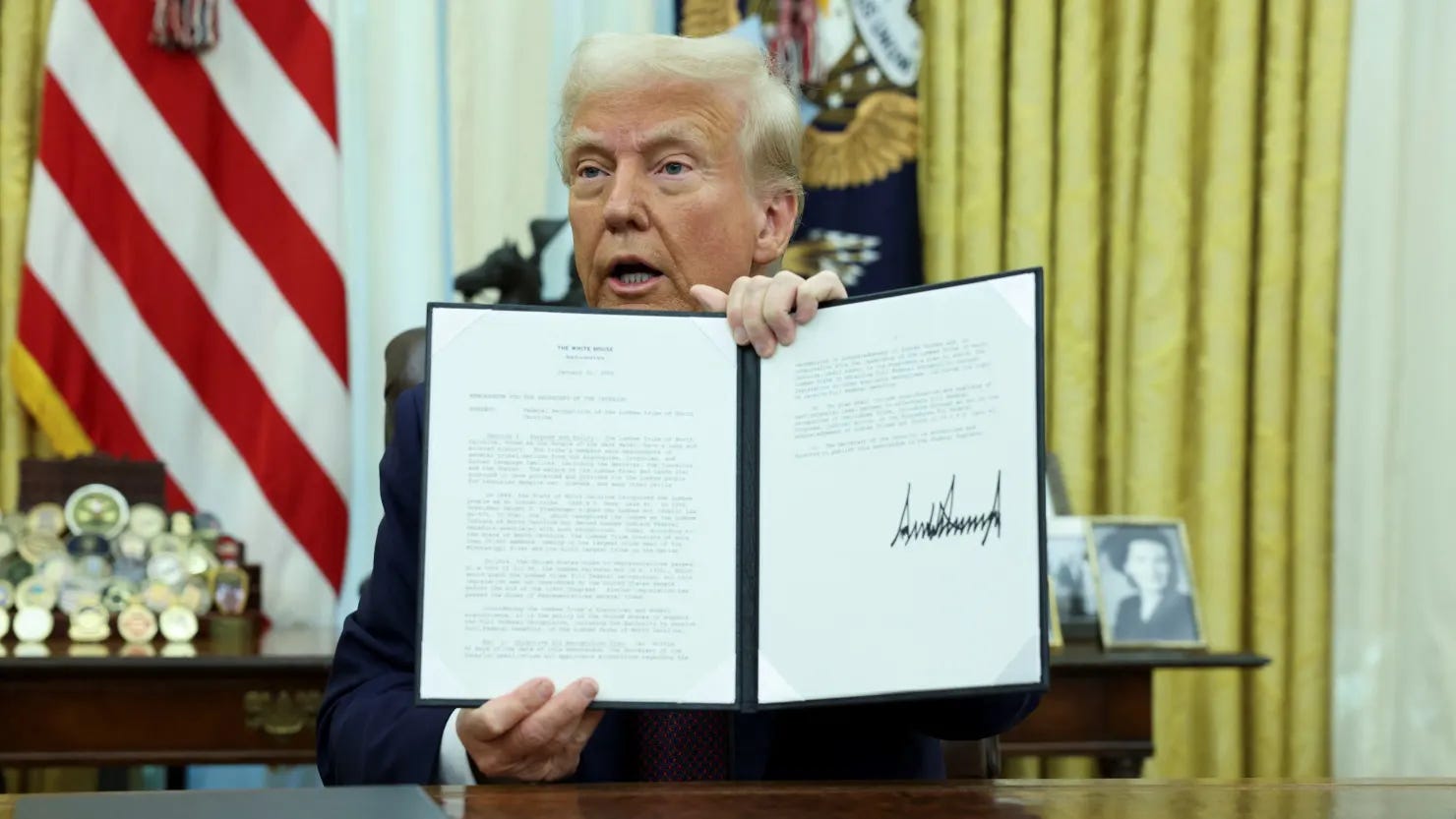House sends landmark crypto bill to Trump’s desk, two more to Senate
The votes mark Congress’s most significant move yet on crypto policy, with House Democrats split, leadership neutral and the industry watching closely.

The House passed a landmark bill establishing the first federal rules for payment stablecoins on Thursday afternoon, sending the measure to President Donald Trump’s desk as the most significant piece of cryptocurrency legislation to clear both chambers of Congress.
Lawmakers also approved two other GOP-led digital asset bills—one to divide regulatory oversight between the SEC and CFTC and another to block the Federal Reserve from issuing a retail central bank digital currency. Together, the votes represent a pivotal moment in U.S. digital asset policy, with Congress advancing its first comprehensive crypto regulatory framework.
The votes exposed fault lines within the Democratic Caucus, with members divided over how to balance consumer protection, financial innovation and the growing influence of the crypto industry. Rather than take a unified stance, Democratic leaders allowed the caucus to splinter.
“The Democratic Caucus made the decision not to whip and allow each individual member to make an assessment based on what was in the best interest of the people that they represent,” House Minority Leader Hakeem Jeffries (D-N.Y.) told me after the votes. “And as a result, you saw people break in different directions.
One House Democrat framed the decision not to whip as a reflection of crypto’s rising political clout.
“Crypto is a big player in the game,” the member said. “It is a game changer for many communities and seen as an economic equalizer and that resonates.”
The member added that lawmakers were likely relieved that leadership didn’t put its thumb on the scale.
A senior Democratic aide, however, dismissed the idea that the industry’s influence shaped leadership strategy, responding with a firm “no” when asked.
The crosscurrents reveal a party still divided on crypto and a leadership team navigating that uncertainty with strategic distance.
A second House Democrat agreed, noting that some colleagues voted for the bills in part to avoid becoming targets of the crypto lobby.
“Leadership may not have whipped those bills, but Maxine Waters sure the hell did,” the second member added, underscoring that while party leaders stayed officially neutral, the top Democrat on the House Financial Services Committee fought hard to rally opposition behind the scenes.
House conservatives on Wednesday briefly derailed their conference’s “Crypto Week” by tanking a procedural vote required to open debate on the bills.
The standoff was sparked by about a dozen hard‐right Republicans siding with Democrats, which froze the floor for nearly ten hours. The holdout members demanded that the measures be debated as a package or attached to must‑pass legislation, creating a deadlock that left the House paralyzed. At the same time, GOP leaders—including Speaker Mike Johnson (R-La.)—and the White House worked behind the scenes to break the impasse.
The marathon reached a breaking point after beating the previous record—set just two weeks ago while mired in internal gridlock over the reconciliation bill—for the longest-ever House floor vote. At its height, voting remained open into late evening, with as many as nine Republicans withholding their support until assurances, such as attaching one bill to the annual defense policy bill, were provided. As they’ve been known to do, the holdouts ultimately folded around 11 p.m.
The three-bill digital asset push reflects an aggressive effort by Republicans and some Democrats to establish a regulatory framework that accommodates crypto innovation while limiting federal power.
The GENIUS Act, which passed the House 308–122 and the Senate 68–30, establishes the first federal framework for payment stablecoins by limiting eligible issuers, requiring strict one-to-one reserves, banning interest payments, and establishing a dual federal–state oversight model.
The CLARITY Act, approved by the House 294–134, divides crypto oversight between the Commodity Futures Trading Commission, the American federal agency that regulates U.S. derivatives markets and the Securities and Exchange Commission, which enforces laws against market manipulation. The bill also establishes guardrails for token issuance and exchange registration, aiming to reduce regulatory uncertainty for developers and investors.
The Anti-CBDC Surveillance State Act, which passed the House 219–210 along party lines, would bar the Fed from issuing a central bank digital currency without congressional approval, a nod to GOP concerns over financial surveillance. While only one measure is heading to the White House, the House votes mark the most substantial congressional action yet on national crypto policy.
Waters counterprogrammed “Crypto Week” with “Anti-Crypto Corruption Week,” a coordinated messaging blitz against the GOP’s deregulatory crypto agenda that I previewed in Sunday’s Congress Nerd. In tandem with Digital Assets Subcommittee Ranking Member Stephen Lynch (D-Mass.) and other House Financial Services Democrats, she sounded the alarm that Republican-led legislation would weaken oversight, invite fraud and cater to an industry increasingly intertwined with President Trump and his political allies.
Waters also warned that the bills planted the seeds for the next financial crisis, which is remarkable since many crypto early adopters say they support the industry because the 2008 crisis showed the limits of centralized, deregulated government.
“The premise of a lot of what people had in support of crypto was that it was going to be decentralized,” Lynch told me this week. “But when you look at the way the crypto industry is right now, it’s really controlled by a small cabal of people, so they haven’t accomplished the decentralization that they thought they were getting.”
Lynch added that many supporters also assumed there would be meaningful oversight from regulators like the SEC or CFTC to protect investors, but noted that this is simply not the case under the current framework.
Committee Democrat Melanie Stansbury (D-N.M.) said the pushback from Democrats isn’t about opposing crypto itself, but about resisting efforts to deregulate the industry at the expense of consumer protections.
“If you want to invest in crypto, that's great. That’s your choice. That's what a free market economy is all about. But we have regulations in place to make sure that bad actors don't take advantage of investors,” she told me. “And what these bills are designed to do is to take the sidebars off that would allow bad actors to take advantage.”
Jeffries himself split his votes, supporting the GENIUS Act but opposing the other two measures.
“It was negotiated in a bipartisan way in the Senate with sufficient guardrails to allow the bill to move forward in a manner that can both benefit the American consumer but also allow the industry to thrive against international competition,” he said after the vote.




